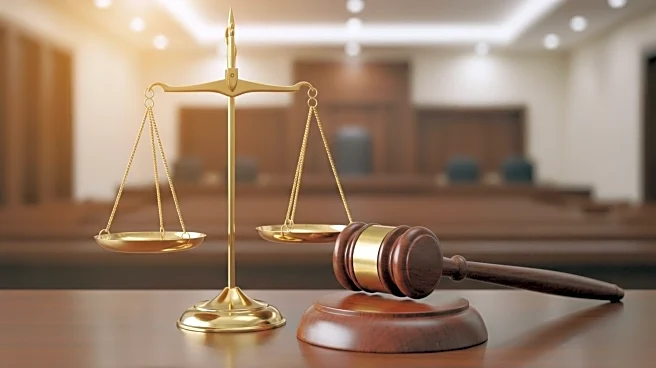What is the story about?
What's Happening?
A federal judge in Chicago has issued a temporary restraining order preventing federal agents from using tear gas, pepper spray, and other riot control weapons against journalists and peaceful protesters. This decision follows a lawsuit filed by Block Club Chicago and other media organizations against the federal government, citing violations of First Amendment rights during protests at the Broadview ICE detention facility. The ruling comes after incidents where journalists were indiscriminately targeted with pepper-spray bullets and tear gas, and a TV reporter's vehicle was hit with a pepper ball. The judge emphasized the constitutional rights of journalists and protesters to report and protest peacefully, stating that the actions of federal agents clearly violated these rights.
Why It's Important?
This ruling is significant as it reinforces the protection of First Amendment rights for journalists and protesters, particularly in the context of immigration enforcement actions. The decision highlights the ongoing tension between federal authorities and media organizations, and underscores the importance of safeguarding press freedom and the public's right to information. The ruling may set a precedent for similar cases across the country, potentially influencing how federal agents engage with journalists during protests. Media organizations and civil rights groups view this as a crucial step in ensuring accountability and transparency in government actions.
What's Next?
The temporary restraining order is set to last for two weeks, with a hearing scheduled for October 23 to consider a preliminary injunction. If granted, the injunction would extend the protections for journalists and protesters while the case proceeds to final judgment. The federal government, represented by the Department of Justice, has expressed opposition to the ruling, suggesting potential challenges ahead. Media organizations and civil rights groups are likely to continue advocating for stronger protections and may pursue further legal actions to uphold constitutional rights.
Beyond the Headlines
The ruling may have broader implications for the relationship between federal authorities and the press, particularly in the context of immigration enforcement and protests. It raises questions about the balance between national security and civil liberties, and the role of federal agents in policing protests. The decision also highlights the potential chilling effect on journalism when reporters face threats of violence and arrest, impacting their ability to cover important public events.
















